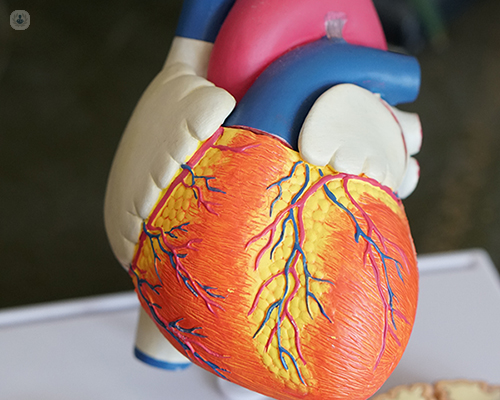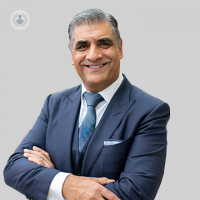The road to better outcomes: keyhole heart surgery
Written in association with:Coronary bypass surgery has traditionally been a major procedure that involves breaking the breastbone to open the chest and reach the heart. However, modern surgery can employ minimally invasive approaches that can lower the risks and reduce the recovery time of these operations. Mr Inderpaul Birdi is here to explain the minimally invasive direct coronary artery bypass (MIDCAB).

What is a minimally invasive direct coronary artery bypass?
Minimally invasive direct coronary artery bypass (MIDCAB), also called minimally invasive direct coronary artery revascularisation, is a procedure that combines beating heart surgery and keyhole surgery. As such, it requires a skilled surgeon well-versed in both techniques. It involves making a small incision on the chest, through which the surgeon can operate on the heart.
MIDCAB is most commonly used to treat isolated disease of the left anterior descending artery (LAD), which is a major branch of the left coronary artery.
What is the difference between traditional and minimally invasive procedures?
The differences are as follows:
Open surgery:
- It is necessary to break the breast bone.
- 3-month recovery
- Unable to do heavy lifting for 12 weeks
- Mild to moderate pain
- Small risk of bone infection
- May leave a significant scar
MIDCAB:
- No broken bone
- Recovery takes around a week.
- You can resume activity within days.
- No bone infection risk
- Minimal pain
- Minimal scarring
Hybrid keyhole coronary artery surgery
The benefits of keyhole revascularisation can be further exploited in a therapy called hybrid coronary artery bypass grafting. This involves a second procedure to treat any remaining narrowed arteries using stents inserted via the MIDCAB opening. It can be performed immediately after the MIDCAB procedure or at a later time.
According to a recent article published in The Journal of the American College of Surgeons, hybrid coronary revascularisation is associated with:
- Reduced rates of in-hospital major morbidity
- Less blood loss/chest tube drainage
- Reduced need for blood transfusions
- Shorter post-operative stay
Hybrid therapies using keyhole techniques like this can be useful in treating coronary disease and valve disease.
Visit Mr Inderpaul Birdi’s Top Doctors profile to book an appointment with him today.


